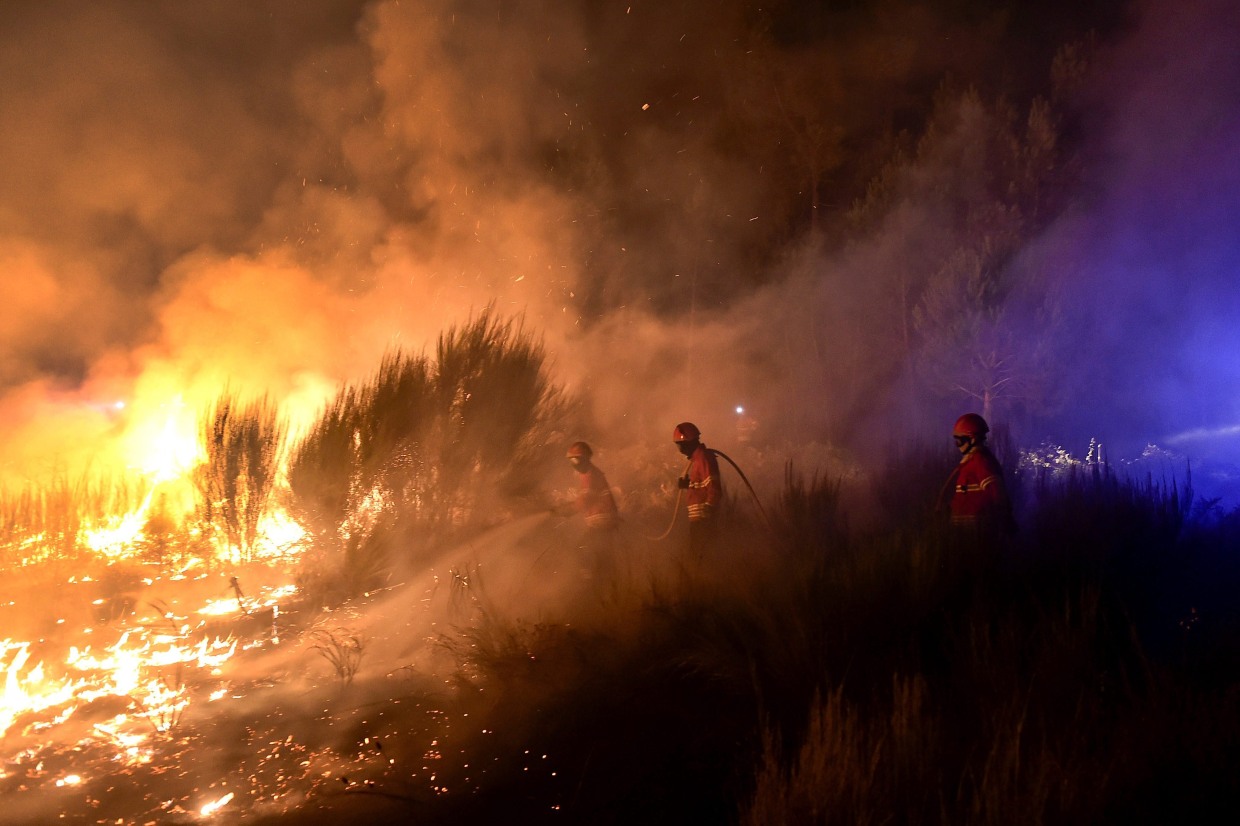Portugal is grappling with a severe wildfire on the Atlantic island of Madeira that has been raging for over a week, threatening one of the island’s most treasured natural sites, the UNESCO-listed Laurissilva forest. As the blaze continues to spread, the Portuguese government has turned to the European Union for assistance, underscoring the gravity of the situation and the need for immediate intervention.
Portugal Activates EU Civil Protection Mechanism
In a bid to bolster the firefighting efforts, Portugal is set to activate the EU Civil Protection Mechanism, which will provide additional resources to combat the wildfire. The mechanism allows EU member states to request assistance in emergencies, and in this case, Portugal has specifically requested two Canadair water bomber planes to aid in controlling the flames. This request highlights the scale of the wildfire and the challenges faced by local firefighting teams.
The Portuguese government, through a source reported by the Lusa news agency, confirmed the decision to seek EU support as the situation on Madeira worsens. The Canadair planes, known for their effectiveness in firefighting, are expected to significantly enhance the ongoing efforts to douse the flames.
Reinforcements Arrive as Firefighters Battle Two Fronts
As the wildfire continues to ravage Madeira, the regional government has mobilized additional resources to support the firefighting efforts. Miguel Albuquerque, the head of Madeira’s regional government, announced the arrival of 60 extra firefighters and first aid specialists from the Portuguese mainland. This reinforcement is in addition to the 76 personnel already deployed to the island since the fire broke out last Wednesday.
Despite the significant human resources on the ground, the firefighting teams face immense challenges due to the fire’s intensity and the difficult terrain. The blaze has spread across two main fronts, covering a vast area and threatening both natural and residential zones. The civil protection service of Madeira reported that more than 100 firefighters are currently engaged in battling the flames, with efforts concentrated in the southern districts of Ribeira Brava, Camara de Lobos, and Ponta do Sol.
Impact on UNESCO-Listed Laurissilva Forest
One of the most concerning aspects of the wildfire is its encroachment on the Laurissilva forest, a rare and ancient laurel forest that holds the prestigious status of being a UNESCO World Heritage Site. The Laurissilva forest is the largest surviving laurel forest in the world, covering an extensive area of Madeira and home to unique biodiversity, including endemic species of plants and animals.
According to Antonio Nunes, the regional civil protection chief, the fire has touched parts of the Laurissilva forest. While the damage is reported to be minimal so far, the threat to this irreplaceable ecosystem is a cause for significant concern. The forest’s loss would not only be a blow to Madeira’s natural heritage but also to global conservation efforts.
Tourism and Local Communities Affected
Madeira is a popular destination for summer tourists, known for its stunning landscapes, mild climate, and rich cultural heritage. However, the ongoing wildfire has cast a shadow over the island’s tourism industry. The fierce winds that have fueled the flames have also led to disruptions at Madeira’s main airport in Funchal, affecting both arrivals and departures. Although the airport is reported to be operating normally this week, the initial disruptions have had a ripple effect on travel plans and the island’s economy.
Local communities have also been deeply impacted by the wildfire. Around 200 residents were evacuated from their homes in the affected districts to avoid the risk of smoke inhalation. Most of these evacuees have since returned to their homes, but the threat remains as the fire is yet to be fully contained. Authorities have confirmed that no houses have been destroyed, and there have been no reports of injuries among the population. However, some firefighters have shown symptoms of exhaustion, a testament to the grueling conditions they face.
Historical Context and Previous Wildfires
Madeira has a history of devastating wildfires, with the current situation evoking memories of past disasters. Last year, thousands of hectares of vegetation were lost to a wildfire that ravaged parts of the island. In 2016, a particularly tragic wildfire near Funchal resulted in the deaths of at least three people and widespread destruction. These events have heightened the urgency of current firefighting efforts, as authorities and residents alike are acutely aware of the potential consequences if the fire is not brought under control.
The Role of Climate and Environmental Factors
The wildfire on Madeira is part of a broader pattern of increased fire activity across Europe, exacerbated by climate change. Rising temperatures, prolonged dry spells, and changing wind patterns have created conditions that are more conducive to wildfires. Madeira, with its mountainous terrain and dense vegetation, is particularly vulnerable to these changes.
The fierce winds that have driven the flames across Madeira are not uncommon on the island, but their intensity has made the current wildfire particularly challenging to combat. These environmental factors underscore the need for comprehensive strategies to address the growing risk of wildfires, not only in Madeira but across the region.
As Portugal seeks EU assistance to combat the wildfire threatening Madeira’s UNESCO-listed Laurissilva forest, the situation on the island remains critical. The activation of the EU Civil Protection Mechanism and the arrival of additional firefighting resources offer hope for containing the blaze. However, the impact on Madeira’s natural heritage, local communities, and tourism industry highlights the broader challenges posed by wildfires in the context of climate change.
The response to this wildfire will be closely watched as a test of regional cooperation and resilience in the face of environmental crises. As firefighters continue their battle on the front lines, the importance of protecting Madeira’s unique landscape and the lives of its residents remains paramount.
Tags: climate change wildfires, Laurissilva forest, Madeira tourism, Madeira wildfire, Portugal, Portugal EU assistance
